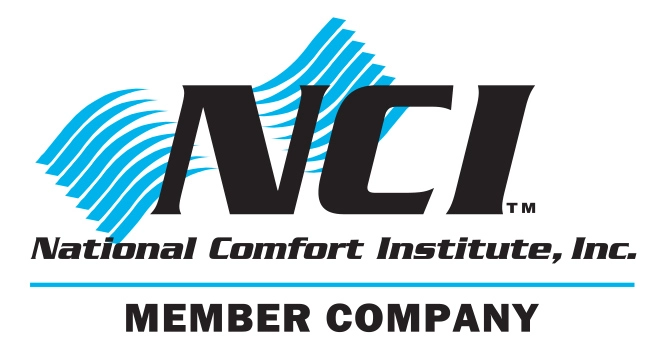As winter approaches and temperatures begin to drop, the importance of a reliable and energy-efficient heating system becomes increasingly evident. Heating and furnace components can deteriorate over time, and there comes a point when considering a replacement becomes inevitable. Knowing the essential factors to consider for heating and furnace replacement can help you choose the right system, maximize your home’s efficiency, and ensure your family’s comfort.
Volpe Service, a family-owned and operated heating, air conditioning, and HVAC company, understands the significance of making an informed decision when it comes to heating and furnace replacement. Our experienced professionals are dedicated to assisting you in navigating the various factors to take into account when investing in a new heating system, such as energy efficiency, system size, type of fuel, and installation requirements.
Throughout this comprehensive guide, we will delve into these factors in detail, helping you evaluate your options and discern the most appropriate heating solution for your unique situation. Our expertise and guidance in the matter are aimed at providing you with the necessary knowledge to confidently decide on a heating system that meets your needs, delivers lasting comfort, and contributes to energy savings.
By recognizing the essential factors associated with heating and furnace replacement and consulting with our skilled technicians, you can ensure that you invest wisely in a heating solution that suits your home perfectly. Let us help you make a well-informed decision that guarantees a comfortable and energy-efficient environment for years to come.
Evaluating the Condition of Your Existing Heating System
Before considering the factors for a new heating system, it’s important to assess the state of your existing heating and furnace. Some common signs that your furnace may need replacement include:
- Frequent Repairs: If you’re constantly calling for repairs, investing in a new system might be more cost-effective than sinking more money into a failing one.
- Rising Energy Bills: An aging heating system typically runs less efficiently, causing a spike in energy consumption and higher bills.
- Uneven Heating: If you notice inconsistent temperatures throughout your home, it may indicate a decline in your system’s performance.
- Excessive Noise: Loud, unusual noises from your furnace could indicate internal problems or impending failures.
If your heating system is over 15 years old and experiencing these issues, it may be time to consider a replacement. Consult with our professionals to determine the best course of action for your unique situation.
Understanding Energy Efficiency Ratings
A critical factor to consider for heating and furnace replacement is energy efficiency. An energy-efficient system reduces environmental impact and lowers your energy bills. When comparing different heating systems, keep an eye out for these efficiency ratings:
- Annual Fuel Utilization Efficiency (AFUE): AFUE measures the efficiency of gas and oil-fired furnaces. A higher AFUE percentage indicates better efficiency.
- Heating Seasonal Performance Factor (HSPF): HSPF is the efficiency rating for heat pumps, specifically for the heating mode. A higher HSPF value signifies greater efficiency.
When choosing a new heating system, prioritize those with higher efficiency ratings, as they can provide long-term energy savings and a lower overall operating cost.
Choosing the Right Size for Your Heating System
Selecting the proper size for your new heating system is vital to ensure optimal performance and energy efficiency. An undersized system will struggle to heat your home adequately, while an oversized unit can result in excessive energy consumption and uneven temperatures.
To determine the right size for your heating system, consider the following factors:
- Insulation Quality: Homes with better insulation require less heating capacity.
- Climate: Colder regions necessitate a larger heating system to provide adequate warmth.
- Home Size and Layout: Larger homes typically require more heating capacity, whereas open floor plans may require less.
Our professional technicians can conduct an assessment and load calculation to help you choose the right size heating system tailored to your home’s specifications.
Selecting the Appropriate Fuel Type
Different heating systems utilize different types of fuel, which can impact efficiency, operating costs, and environmental factors. Common fuel options include:
- Natural Gas: Gas furnaces are energy-efficient and often have lower operating costs than other fuel types.
- Oil: Oil-fired furnaces generate more heat than gas furnaces but are less energy-efficient and require regular oil deliveries.
- Electricity: Electric heating systems typically have lower installation costs and are suitable for milder climates; however, they may have higher monthly utility expenses.
Consider fuel availability in your area and the potential long-term costs and environmental factors associated with each fuel type to make an informed decision that best suits your needs.
Installation Requirements and Costs
The installation process of a heating and furnace replacement is an essential factor, as it can significantly impact the overall cost. Factors that may influence installation requirements and costs include:
- Ductwork: If your current ductwork is in poor condition or inadequately sized, it may need repair or replacement, incurring additional costs.
- Conversion Requirements: If you’re switching fuel types, your new heating system may require additional equipment or modifications, leading to higher installation expenses.
- System Type: The type of heating system you choose can impact installation complexity and cost.
Our qualified technicians can provide a thorough assessment and transparent pricing for your heating system’s installation, taking into consideration your specific requirements and budget constraints.
When the time comes to consider a heating and furnace replacement, understanding the essential factors involved in selecting a new system is crucial for optimal comfort, efficiency, and cost-effectiveness. By evaluating your existing system’s condition, understanding efficiency ratings, choosing the right size and fuel type, and considering installation requirements, you can make a well-informed decision that ensures a comfortable and energy-efficient environment.
Ready to invest in a heating and furnace replacement that will keep your family cozy for years to come? Let the experts at Volpe Service Company guide you through the process with tailored recommendations that meet your unique needs. Schedule a consultation with our knowledgeable technicians today and take the first step towards a more comfortable home. Trust Volpe Service Company to provide top-quality heating and furnace replacement services for your home.













